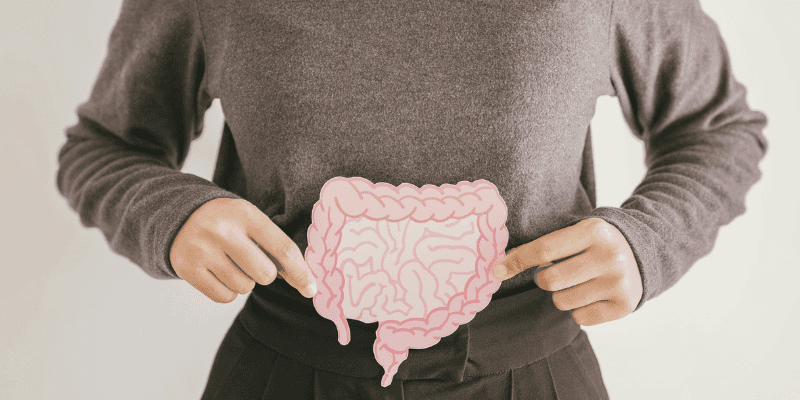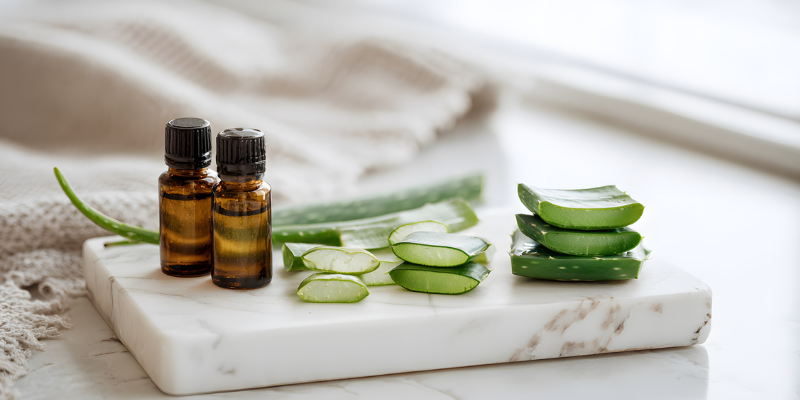Feeling sluggish after meals or dealing with occasional bloating? You’re not alone. The ancient wisdom of herbalism offers a wealth of support for the body’s most foundational system. If you’re searching for herbs for good digestion or natural ways to maintain balance, the answer might be growing in your garden.
Modern research increasingly points to the serious connection between digestion and overall well-being. This is why more people are looking beyond simple remedies and seeking powerful herbs for gut health. But what exactly can nature do? We’re going to explore the best natural allies, not just remedies, but vital support for the entire gastrointestinal tract.
We’ll jump into specific herbs that aid digestion, discussing how they work with your body’s mechanics, and why their effects go deeper than just easing a troubled stomach. From demulcents to bitters, these powerful plants are essential tools to support your digestive system.
Necessarily, we’ll highlight the connection to the microscopic world, revealing the top herbs for the microbiome that help cultivate a successful internal ecosystem.
By the end of this post, you’ll know exactly which herbs to help digestion you should add to your daily routine for a happier, healthier gut.
1. Anti-Inflammatory & Soothing Herbs
These herbs calm irritation in the digestive system, reduce inflammation, and provide a protective layer, helping to ease symptoms like bloating, pain, and indigestion.
| Herb | Key Actions and Gut Benefits |
| Ginger (New focus: Demulcent) | Reduces inflammation, stimulates digestive juices, and is famous for soothing nausea and an upset stomach. |
| Turmeric | Rich in curcumin, which has powerful anti-inflammatory and antioxidant properties that support overall gut health and protect the gut lining. |
| Marshmallow Root (NEW Addition: Demulcent) | A demulcent herb that contains mucilage, creating a protective, soothing barrier over the irritated intestinal lining (critical for IBS/leaky gut). |
| Slippery Elm (NEW Addition: Demulcent) | Similar to Marshmallow Root, its high mucilage content coats the GI tract, reducing irritation and helping to firm up loose stool. |
| Rosemary | Enhances digestion, eases bloating, and contains compounds that fight oxidative stress in the gut environment. |
2. Probiotic-Boosting (Prebiotic) Herbs
These herbs and plants are rich in non-digestible fibers and compounds that act as prebiotics, feeding beneficial gut bacteria and promoting a diverse, balanced microbiome.
| Herb/Plant | Key Actions and Gut Benefits |
| Chicory Root | A potent natural source of inulin, a prebiotic fiber that encourages healthy bowel function and significantly supports microbiome diversity. |
| Burdock Root (NEW Addition) | A bitter herb that is also a fantastic source of inulin and other fructans; it supports detoxification pathways and gut flora balance. |
| Dandelion Root (NEW Addition) | Often roasted for teas, this root is another prebiotic powerhouse that supports the liver and bile flow, indirectly boosting gut health. |
| Garlic | Contains allicin, which works as a selective antimicrobial, helping control harmful microbes while supporting the growth of beneficial gut bacteria. |
| Onion & Leeks | Excellent sources of prebiotic fructans that nourish good bacteria, contributing to improved digestion and microbial balance. |
Bitter Herbs & Digestive Stimulants (The best for “Aiding Digestion”)
These herbs stimulate the liver to produce bile and the stomach to produce acid (HCL) before food even enters the stomach, which is the key to healthy digestion.
- Examples: Gentian, Artichoke Leaf, Dandelion Leaf, Angelica Root.
Carminative Herbs (The best for Gas & Bloating Relief)
These herbs contain volatile oils that relax the muscles of the digestive tract, helping to expel gas and reduce cramping.
- Examples: Peppermint, Fennel Seed, Chamomile, Anise, Caraway.
3. Soothing and Protective Herbs (Demulcents)
These herbs contain a high amount of mucilage (a thick, gelatinous substance) that literally coats and protects the gut lining, relieving irritation and promoting healing, particularly useful for sensitive stomachs or conditions like gastritis, ulcers, and intestinal permeability (leaky gut).
| Herb | Key Actions and Gut Benefits |
| Slippery Elm | A powerful demulcent that forms a protective, slippery layer over the entire gut lining, reducing irritation, easing digestive discomfort, and slowing diarrhea. |
| Marshmallow Root | Rich in mucilage, it actively soothes inflammation, calms spasms, and supports tissue healing in the digestive tract from the esophagus down to the colon. |
| Aloe Vera | The inner leaf gel contains anti-inflammatory compounds and polysaccharides that may help soothe ulcers, reduce acid reflux, and ease general irritation in the intestines. Note: Use specifically prepared internal-use products. |
| Licorice Root (NEW Addition) | Best used as DGL (deglycyrrhizinated licorice), it specifically helps to heal the protective mucosal lining of the stomach and duodenum, effective for acid reflux and ulcers. |
4. Carminative Herbs for Gas & Bloating
No gut health post is complete without addressing the common issues of gas and bloating. Carminative herbs are essential because their volatile oils help relax the smooth muscles of the digestive tract, allowing trapped gas to be released and easing cramping.
| Herb | Key Actions and Gut Benefits |
| Fennel Seed | Highly effective at relieving gas, bloating, and cramps; it promotes peristalsis and has a mild antispasmodic effect. Chewing the seeds after a meal is a traditional remedy. |
| Peppermint | The menthol in this herb is a potent antispasmodic, immediately calming painful spasms and cramps associated with Irritable Bowel Syndrome (IBS). |
| Chamomile | Not just for sleep, this gentle herb is a fantastic antispasmodic and nervine, helping to relax tension in the gut that can be exacerbated by stress. |
| Anise Seed | Similar to fennel, it helps to dispel flatulence and supports overall digestive comfort, especially when consumed as a tea. |
How to Use Herbs for Gut Health
Incorporating these herbs can be simple and enjoyable. Here are the most common ways to use them effectively:
- Teas (Infusions/Decoctions): Excellent for demulcent herbs (like Marshmallow Root) and carminatives (like Fennel or Chamomile). Steep light herbs (leaves/flowers) for 10 minutes and simmer roots (like Ginger or Turmeric) for 15-20 minutes.
- Tinctures: Liquid extracts that offer concentrated dosages and high potency, often used for Bitters or potent anti-inflammatories.
- Capsules & Powders: A convenient way to take standardized doses of herbs like Turmeric or Slippery Elm bark powder.
- Culinary Use: Don’t overlook daily use! Simply incorporating Garlic, Onion, Ginger, and Rosemary into your cooking adds potent, daily gut support.
Pairing with Probiotic/Prebiotic Foods: Maximize the effects of your herbal regimen by pairing it with fermented foods (yogurt, kefir, sauerkraut) and high-fiber prebiotic foods (oats, apples, beans).
Dosage Caution and Consulting Healthcare Providers: Always start with the lowest effective dose. If you are pregnant, nursing, on prescription medication (especially blood thinners or diabetes drugs), or have a pre-existing medical condition, you must consult a qualified healthcare practitioner (such as a naturopathic doctor, clinical herbalist, or functional medicine MD) before starting any new herbal regimen.
When to See a Doctor
While herbs are powerful allies for chronic, mild, or functional digestive issues, a Naturopathic Gastroenterologist emphasizes that they are supportive and not a replacement for medical care.
Seek immediate medical attention if you experience any of the following symptoms:
- Persistent or Severe Gut Pain: Pain that wakes you up at night or doesn’t resolve.
- Blood in Stool or Rectal Bleeding: This is a critical symptom that requires investigation.
- Sudden or Unexplained Weight Loss.
- Chronic Diarrhea or Constipation that doesn’t respond to basic remedies.
- Difficulty Swallowing or Vomiting Blood.
Remember: Herbs can be incredibly effective for supporting a functional digestive system and microbial balance, but a physician is necessary to rule out serious underlying conditions like IBD (Inflammatory Bowel Disease), Celiac Disease, or ulcers. Always use your herbal regimen to complement a proper medical diagnosis, not replace it.
What Role Does Natural Healing Heaven Play in My Gut Health Journey?
At Natural Healing Heaven, we believe that the journey to optimal health begins in the gut, and nature provides the best roadmap.
Our mission is to cut through the confusion and deliver clear, actionable information on which herbs for gut health and natural remedies truly work. We play the essential role of educator and curator, guiding you through the powerful world of anti-inflammatory spices, prebiotic roots, and soothing demulcents.
By providing expertly researched articles, practical usage guides for teas and tinctures, and responsible cautions, Natural Healing Heaven enables you to confidently choose the right herbs that aid digestion and build a successful, naturally balanced microbiome.
Conclusion
Adopting herbs for gut health is one of the most foundational steps you can take toward total body wellness. We’ve explored the incredible range of nature’s pharmacy, from potent anti-inflammatory agents like Turmeric and Ginger, to soothing demulcents like Marshmallow Root that protect the intestinal lining, and essential prebiotics that nourish your microbiome.
By thoughtfully incorporating these herbs that aid digestion, whether through simple teas or targeted tinctures, you gain powerful, natural tools to manage bloating, calm irritation, and cultivate a truly thriving digestive system.
Remember that the journey to a happier gut is continuous, and armed with the wisdom from Natural Healing Heaven, you are now equipped to choose the right herbs to help digestion and unlock a greater sense of well-being.













